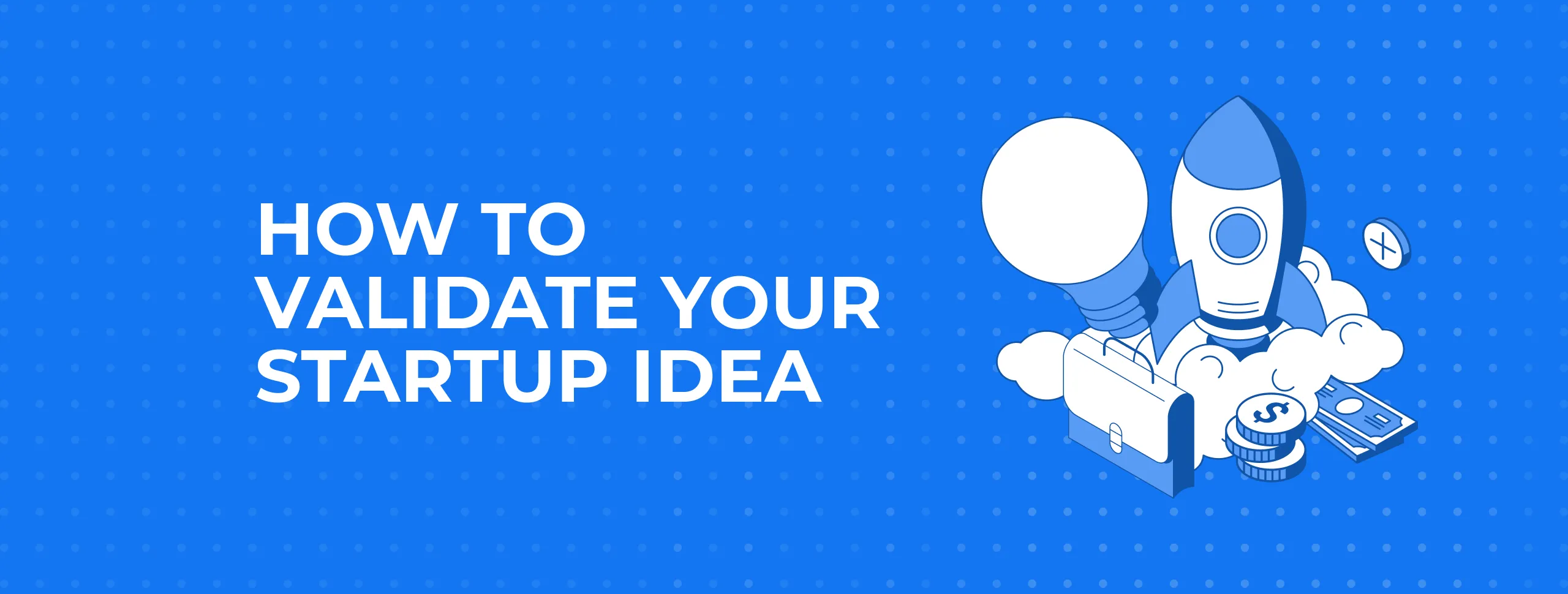
How to Validate Your Startup Idea

Have you ever experienced a eureka moment? When it happens, it seems like everything comes together and a brilliant idea dawns upon you. You are excited, you lose sleep, all you can think of is bringing your idea to reality. As professional developers who have been working for many years on various projects that started from business ideas as a startup and grew into excellent products, we know how to spot a good startup idea from a bad one. Here are a few tips on how to test whether your project has a bright future or should better be dismissed before it is too late.
Test as Many Ideas as Possible
The more experiments you run, the more chances of success you get. Being clever and creative is not enough when it comes to startups - you should experiment with your ideas and learn through trial and
Discuss The Idea with Customers
Customer interviews is an art that you have to learn. But your efforts will certainly pay off. The principal objective of customer interviews is identifying the problems your customers face. Your ideas and solutions take a
Never Get Obsessed with The Idea
One of the biggest mistakes a startupper can make is getting absolutely obsessed with their idea. It is most likely that your brilliant ideas are not that good when it comes to testing it in the real world. It does not necessarily mean that your ideas are poor, that is just because you cannot be certain what will and what will not work in the business environment. However, it is not the reason to get depressed - when you fail, you always learn something new that will help you come up with another, even better idea.
Act On Your Decision
- Try to get the money before your product is out on the market. You should not be afraid of pre-selling your future
products, because it is a good way to see whether it is viable and can save you from making a wrong decision. - Dismiss every idea that has not proven to be a big hit among your customers. You do not have a huge budget to spend it on advertising a product that no one really cares about. You should find an idea that people will be really enthusiastic about, even if we are talking about a small group of people.
- Once you have found a good idea, try to sell it as much as possible to explore your limits. If you give up after a couple of purchases, you will never know whether your idea will be profitable in the long run.
Create A Landing Page
If we are speaking about a new mobile app -
OK, I Have A Landing Page, What Is Next?
- Pay attention to the product description - it should be simple to understand, make sure that even a 10-year-old can understand it.
- Gather analytics and check how many views, clicks and subscriptions you receive - this will make you see, how close to success you really are.
- Use keywords to optimise your landing page for search engines - ask the customers how they searched for the solution of their problem and use the results of the survey.
- Last, but not least - weigh up how easy it is to get customers and distribute the product.
And now it is time to make a decision: was this step successful enough to proceed to the next stage?
If so - create a minimum viable product (MVP).
Build an MVP
One of the best ways to check whether your startup will find its audience is to do a simple version of your future product, a product that has only the core features that enable it to work. An MVP helps you to get your product to the market with a minimal investment of time and money: measure the market size, determine how much profit you can make and estimate how many customers are willing to buy your product.
What Benefits Does an MVP Brings to Me?
- Get to market fast. Your product may be basic and not rich with features, but it is working and can be available to the customers early on. You do not need to waste time on implementing all the features and spend a lot of money on
development, because you will be able to update it over time. - Receive feedback. You will be able to improve your product and add new features on the basis of the feedback your customers will supply you with.
- Conduct research. Analysing user feedback, you can develop a strategy of feature implementation and invest your money wisely.
- Observe user behaviour. By monitoring how your customers interact with your business solution, you will see where they have difficulties and what features they like the most. It is valuable information that will enable you to optimise your product and improve customer experience.
All in all, an MVP gives you a great chance to test your product in real life as it poses
If after having run all these tests you can then make a decision to move on, check out our infographics on launching a successful startup.
Do you have a great idea for a startup you wish to test, validate and bring to life? Or do you need an MVP for your product? Drop us a line, and we will evaluate your idea, suggest ways to make it happen and together we will help you to create an application that people desperately need.





